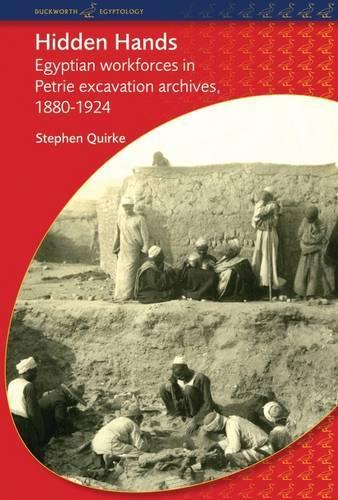
Hidden Hands: Egyptian Workforces in Petrie Excavation Archives, 1880-1924
(Paperback)
Publishing Details
Hidden Hands: Egyptian Workforces in Petrie Excavation Archives, 1880-1924
By (Author) Stephen Quirke
Bloomsbury Publishing PLC
Bristol Classical Press
1st December 2010
United Kingdom
Classifications
General
Non Fiction
932
Physical Properties
Paperback
344
Width 154mm, Height 232mm, Spine 28mm
556g
Description
Despite major movements for change, in practice archaeologists still pursue the past to the exclusion of the present inhabitants of archaeological landscapes. Archaeological archives hold a key to the formation of archaeology as a separate study, but they may be overlooked in current debates on ethics in archaeology and anthropology. This study focuses on the great archive that records the work of Flinders Petrie in Egypt, first in 1880-1882 under a nationalist government, and then during the English military occupation that lasted from 1882 until after his death in 1942. The archive brings to life the main Egyptian supervisors who enabled Petrie to function as an archaeologist, while payroll lists record the names of hundreds more men and children on the full labour force. None of these Egyptians have received recognition as an archaeologist in history-writing, foreign or Egyptian. This archival ground offers a new open resource to those within Egypt and elsewhere opposed to the neo-colonial regime of the disciplines.
Reviews
Hidden Hands provokes much thought for the future of archaeology. * TLS *
From any point of view, this book is a detailed and fascinating insight into the Petrie Museum archives, and the social context of Petrie's excavations.' * Egyptian Archaeology *
This is a densely-argued text, which will prove a source for future investigation, not only by archaeologists, but also by students of social history.' * Ancient Egypt *
Author Bio
Stephen Quirke is Curator of the Petrie Museum of Egyptian Archaeology and Professor of Egyptian Archaeology, Institute of Archaeology, University College London.
